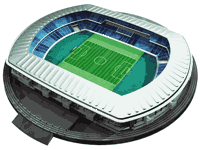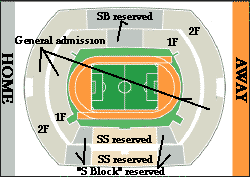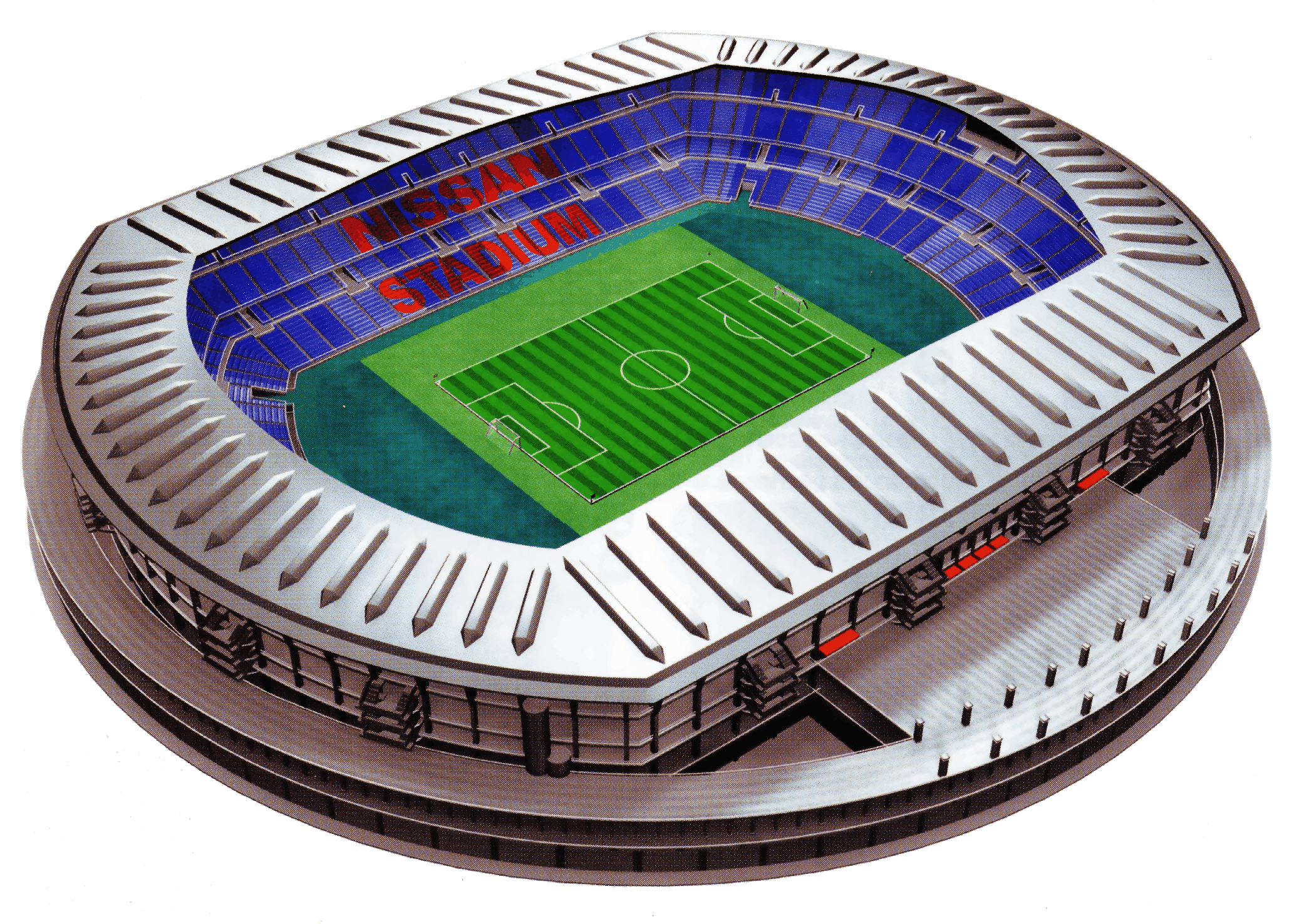Yokohama International Stadium
a.k.a. Nissan Stadium
Yokohama City, Kanagawa Prefecture
| Yokohama is Japan's second largest city, and considering its close proximity to Tokyo, it is hard to tell where one of these two sprawling metropolises ends and the other begins. Nevertheless, the city by the bay clings fiercely to its separate character and identity. Since Commander Perry landed his ships in the area some 150 years ago, the city has tried to present a very international and "chic" image to set itself apart from its larger neighbor. The glittering skyscrapers and bustling neighborhoods of Yokohama show the most modern side of Japan.
Yokohama is about 30 minutes by train from Tokyo, and the stadium is just a short train ride to the north of Yokohama City, easily accessible from a number of key train lines and expressways. Yokohama likes to consider itself a "hotbed" of football, though it probably will have to take a back seat to some of the local towns in nearby Shizuoka prefecture and Ibaraki, to the west, where football is the only game in town. Yokohama sports fans split their loyalties with the Yokohama Bay Stars baseball team. |
 |
 |
Nevertheless, the region has a long history of support for the sport. In the mid-1990s, Yokohama was host to two of the most popular teams in the J.League. Unfortunately, financial difficulties forced the Yokohama Flugels into bankruptcy, and they eventually merged with their cross-town rivals, the Yokohama Marinos. The Marinos, however, are still one of the core teams in the J.League, and they make their home in Yokohama International Stadium which will host five games including the World Cup final match.
Yokohama Stadium is one of the few World Cup venues in Korea and Japan that was not built specifically for the World Cup. The stadium was completed in 1997, and hosted a number of key international matches, including the semifinal and final of the 2001 Confederations Cup, prior to its selection as the site of the 2002 World Cup final. Although it is not football-only, the stadium was chosen as the site of the final match in part because of its magnificent broadcasting facilities. The high-tech cameras at Yokohama Stadium give TV viewers unprecedented angles and crystal-clear coverage of every play . |
| Yokohama International Stadium | Capacity: 72,600 | |
| Home Team: Yokohama Marinos | Completed: September 1997 | |
| Location: Yokohama City, Kanagawa Prefecture | ||
Stadium AccessYokohama International Stadium is served by several above-ground and subway lines, though all are a good 10 minute walk from the stadium itself. The easiest access for clueless foreigners is from Shin-Yokohama stadium, which is a stop on the main shinkansen line, as well as the JR Yokohama line and the Yokohama Number 3 subway line. Upon leaving the stadium through the north exit and walking to the left (west) side of the open traffic square in front of the station, one can see a broad avenue leading away to the north, which has large signs identifying it as "Stadium Dori" (stadium road). The road leads . . . .you guessed it . . . right to Yokohama Stadium. The front gate is an easy 15 minute walk. However, the very next station on the JR Yokohama line, Kozuke station, is actually closer to the stadium. Leave the station through the north exit and walk straight ahead on the main road leading away from Kozuke station, following the road as it bears to the right. Within five minutes you will catch site of the stadium roof, and should be able to make your way through the surrounding park to the stadium without any trouble.
|
  Click to enlarge |
  |
Ticket PricesGeneral admission: |


